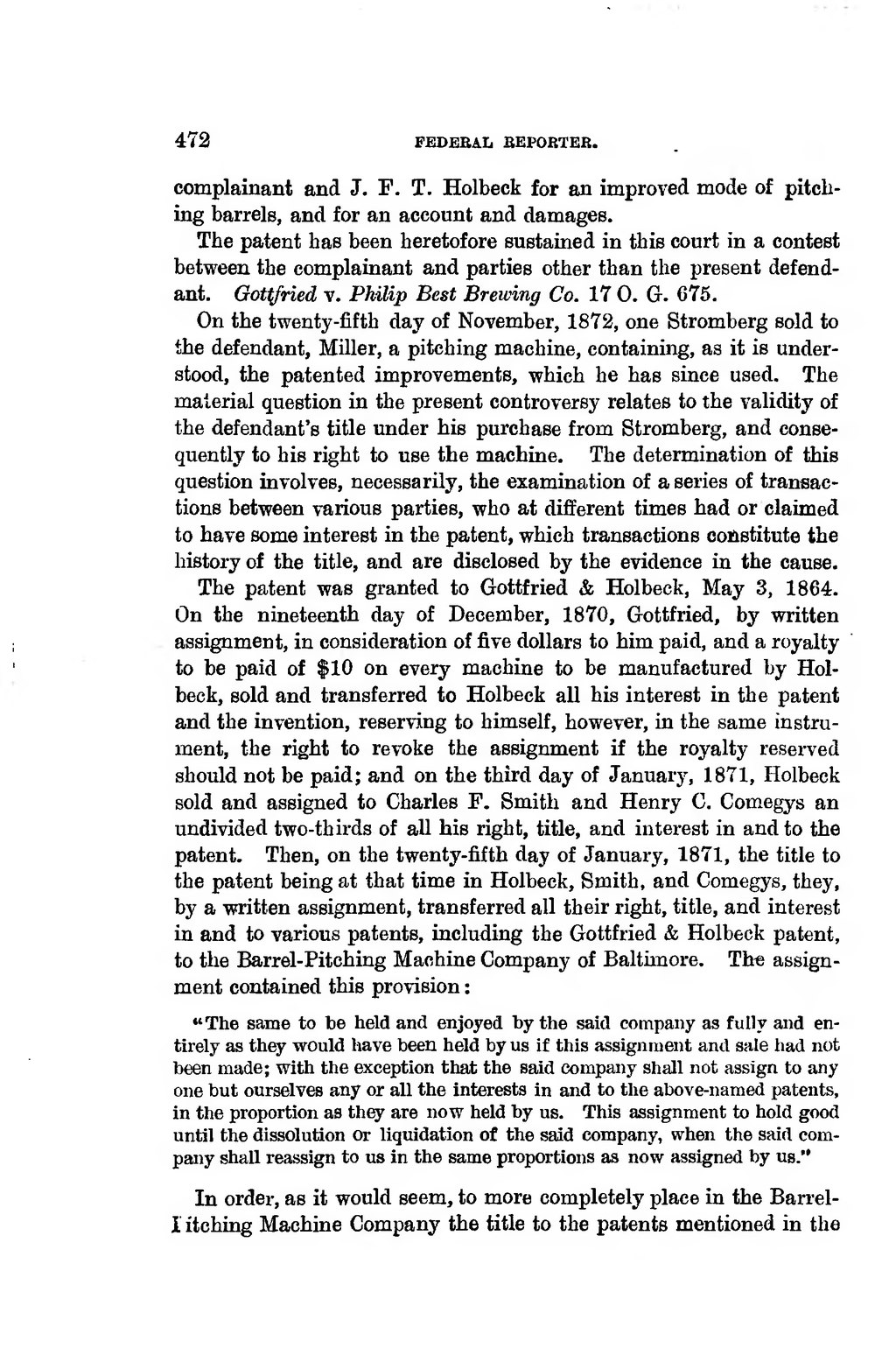472 FEDERAL REPORTER. �complainant and J. F. T. Holbeck for an improved mode of pitcb- ing barrels, and for an account and damages. �The patent bas been heretofore sustained in this court in a contest between the complainant and parties other than the present defend- ant. Gottfried v. Philip Best Brewing Co. 17 0. G. 675. �On the twenty-fifth day of November, 1872, one Stromberg sold to the defendant, Miller, a pitching machine, containing, as it is under- stood, the patented improvements, whicb he bas since used. The malerial question in the present controversy relates to the validity of the defendant's title under bis purchase from Stromberg, and conse- quently to bis right to use the machine. The determination of this question involves, necessarily, the examination of a series of transac- tions between various parties, who at different times had orclaimed to have some interest in the patent, which transactions constitute the bistory of the title, and are diselosed by the evidence in the cause. �The patent was granted to Gottfried & Holbeck, May 3, 1864. On the nineteentb day of December, 1870, Gottfried, by written assignment, in consideration of five dollars to him paid, and a royalty to be paid of $10 on every machine to be manufactured by Hol- beck, sold and transferred to Holbeck all his interest in the patent and the invention, reserving to himself, however, in the same instru- ment, the right to revoke the assignment if the royalty reserved should not be paid; and on the third day of January, 1871, Holbeck sold and assigned to Charles P. Smith and Henry G. Comegys an undivided two-thirds of all his right, title, and interest in and to the patent. Then, on the twenty-fiftb day of January, 1871, the title to the patent being at that time in Holbeck, Smith, and Comegys, they, by a written assignment, transferred all their right, title, and interest in and to various patents, including the Gottfried & Holbeck patent, to the Barrel- Pitching Machine Company of Baltimore. Th« assign- ment contained this provision : �"The same to be held and enjoyed by the said company as fully and en- tirely as they would have been held byus if this assignment and sale had not been made; with the exception that the said company shall not assign to any one but ourselves any or all the interests in and to the above-named patents, in the proportion as they are now held by us. This assignment to hold good until the dissolution or liquidation of the said company, when the said com- pany shall reassign to us in the same proportions as now assigned by us." �In order, as it would seem, to more completely place in the Barrel- I itching Machine Company the title to the patents mentioned in tha ��� �
Page:Federal Reporter, 1st Series, Volume 10.djvu/484
This page needs to be proofread.
